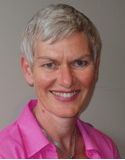….continued….
 Science continues to discover new hormones and chemicals which act as neurotransmitters. These chemical messengers are constantly tweaking our cell’s performance. One of the hormones that we secrete has been named anandamide – the bliss hormone – ananda being a Sanskrit word meaning bliss.
Science continues to discover new hormones and chemicals which act as neurotransmitters. These chemical messengers are constantly tweaking our cell’s performance. One of the hormones that we secrete has been named anandamide – the bliss hormone – ananda being a Sanskrit word meaning bliss.
When it locks onto the receptor on many of our cells it gives a positive message that encourages the cell to optimise its performance. It’s part of our body’s internal pharmacy of hormones and chemicals that improve and maintain our health. Why wouldn’t our body secrete self-healing, health maintaining hormones and chemicals to help fulfill its purpose ~ to house the spirit that is here to be realised?
We’re only just beginning to understand the contribution our feelings make through these chemical messages. We smile about people in love because the world looks different through lover’s eyes. We even say they’ve got stars in their eyes because people in love have a sparkle about them. The chemicals of love and joy tingle in our bodies and give a sense of peace and wellbeing.
It’s obvious by the lines on our faces which emotions visit their most frequently. Those who live in the present and are content and peaceful have an aura of joy about them. They are spontaneous and available to fully experience the present moment. Their minds are uncluttered by unresolved issues or perceived threats to their peace.
 The chemicals of joy, peace, love, contentment and bliss are powerful immune and health enhancers whilst the chemicals of fear, blame, resentment, entrapment, hopelessness, anxiety, stress and powerlessness are not.
The chemicals of joy, peace, love, contentment and bliss are powerful immune and health enhancers whilst the chemicals of fear, blame, resentment, entrapment, hopelessness, anxiety, stress and powerlessness are not.
We need to honour and listen to this wise inner voice because it is our greatest asset in life. It is the voice of our creative spirit and the guiding light for our journey to full consciousness. It is in the presence of this intuitive self that we feel a deep sense of connectedness to that which is sacred within us.
We don’t heal from something we resist or fear we heal into that which we more deeply desire.
Healing requires that we’re willing to examine every belief, judgment, value, desire, inhibition, expectation and assumption we hold. In time, we discard everything but those things that we find true in their depths.
To aim for a cure requires the same kind of thinking processes that we use when we’re problem solving and not listening to our intuition. It is only focused on ridding ourselves of something. Yet, life is a process of unfolding rather than a finite state that we achieve. Curing is only about the finite state not the process. Healing addresses the whole person taking into account the physical, mental, emotional and spiritual aspects thus leading to a deeper understanding and wisdom about our selves. After all life is not a competition to see who stays alive the longest. We value a life by the passion with which it was lived, by the love made evident, by the peace or joy given to others rather than its length.
In modern medicine a cure is normally considered an external medical intervention that reliably removes physical disease in most people. Whereas healing in contrast, is an inner movement towards wholeness and can take place at physical, emotional, mental and spiritual levels. Most ancient healing traditions of medicine place their primary emphasis on this inner healing, on caring for the human soul, rather than on curing.
Real health is our capacity to embrace every moment, regardless of its challenges, with an open heart and a quiet mind. This definition of peace is embodied in the Four C’s: We regain a sense of control, choosing not to react from our history but making an appropriate response to the situation in which we find ourselves. This requires awareness and a desire to participate rather than feeling a helpless victim of our circumstance. We care enough to be committed to getting emotionally up to date with our life so that we can be here now ~ in the present moment. We have healthy priorities, are in clear communion with ourselves and have the capacity to communicate with our loved ones. We find our life positively challenging recognising that we’re here to grow in wisdom and our capacity to love and we make meaning of our suffering. We feel lovingly connected to those we share our life with and to our own spirit or we have a profound sense of connectedness.
When we desire to live with this sense of peace in our lives the outcome is guaranteed. Peace is always possible and regardless of the circumstances of our lives, peace becomes our reality. The living presence of these qualities creates the ideal environment in which physical healing can take place. If physical healing is not to be our lot then we still have peace. This is the peace that passes all understanding and which allows us to take our leave of life lightly if that is to be our pathway.
Petrea King
N.D., D.R.M., D.B.M., Dip Cl. Hyp., I.Y.T.A.
Petrea King is a well-known author, inspirational speaker, counsellor and workshop leader. She has practiced many forms of meditation since the age of seventeen and she is also qualified as a naturopath, herbalist, hypnotherapist, yoga and meditation teacher.
In 1983 Petrea was diagnosed with acute myeloid leukaemia and was not expected to live. Meditation and the integration of past traumatic experiences became paramount in her recovery, much of which was spent in a monastery near Assisi in Italy.
Since then, Petrea has counselled individually or through residential programs more than 60,000 people living with life-challenging illnesses, grief, loss, trauma and tragedy. Petrea sees crisis as a catalyst for spiritual growth and understanding and as an opportunity for healing and peace.
Petrea has received the Advance Australia Award and the Centenary Medal for her contribution to the community. She has been nominated for Australian of the Year in each year since 2004.





